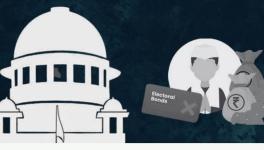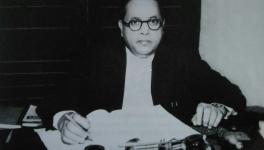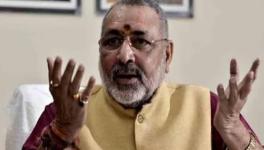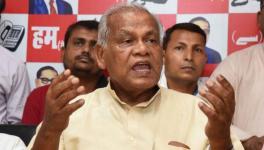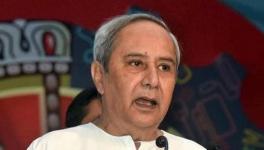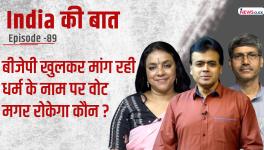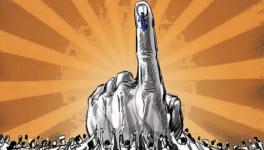CAA-NRIC: Indian Muslims Send SOS
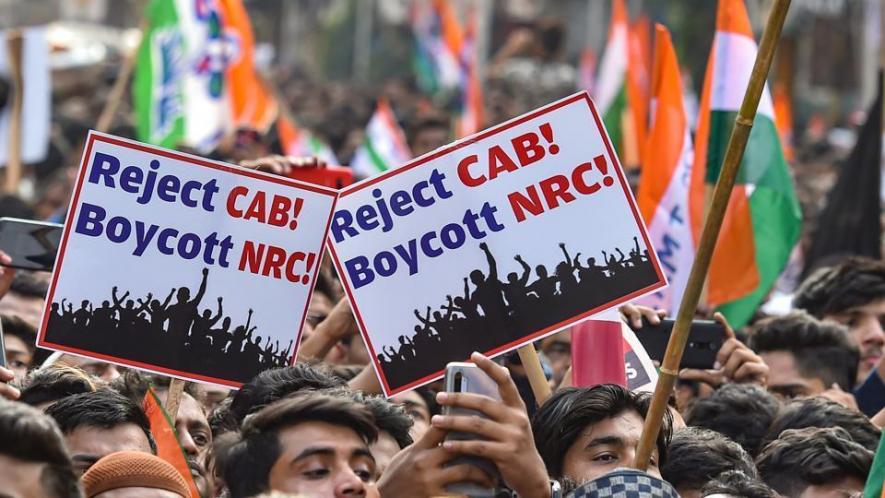
It is a fact that the countrywide struggle against the communally-biased and divisive Citizenship Amendment Act, the nationwide NRC and the National Population Register is not spearheaded just by the Muslim citizenry. Indeed, the dangers inherent in these three interventions lurk upon every Indian, especially the disadvantaged, underprivileged and marginalised. Members of non-elite castes, tribal groups, farmers, the poor, women and LGBTQ communities will bear the brunt of these policies.
Yet, it is also true that it is the Muslims who are the immediate target of all three schemes. Home Minister Amit Shah has repeatedly issued threats that he will rid the country of “termites”, widely understood as a euphemism for Bangladeshi migrants as well as Muslim citizens of India. To top it, detention centres are being built in Assam and Karnataka, another state ruled by his Bharatiya Janata Party, and the Centre is going to build more. In the protests against the CAA and NRC that are now raging, more than 20 Muslims have been killed, in just Uttar Pradesh. Hundreds have been disabled and the stories of their custodial torture are harrowing. Instead of remorse, the state has turned to blame-shifting, holding the Muslims solely responsible for the protests.
I graduated from and did my Masters in Jamia Millia Islamia (Jamia), whose students sparked off the protests against the CAA and NRIC over a fortnight ago. Their demonstrations were barbarically crushed by the police. Shivers go down the spine just watching the videos of the mid-December night when students were mercilessly beaten, even in the library and bathrooms of Jamia. Videos of the mayhem were released by the students, essentially as a desperate call for help. But no one turned up for them, not even the vice chancellor who lives a walking distance away.
The police crackdown was widely condemned by campuses and civil society groups across the world. The violence against a university and its syncretic student ethos was castigated by all, except the government. The state and the ideologues of the ruling BJP, instead, has been calling these students “traitors” and “rioters”. Does this not amount to disowning and disenfranchising them, even before the National Register of Indian Citizens (NRIC) is put into action? The fringe organisations associated with the RSS or Rashtriya Swayamsewak Sangh are considered holy cows by large sections of the media. Such media outfits are furthering the state’s campaign to polarise people in order to reap electoral benefits. That is why it is also shamelessly calling the engineers, doctors, lawyers and policy-makers of tomorrow “traitors”.
Tomorrow, some of these students may become lawmakers, as happened during the Indian freedom movement when “traitors to British empire” came to frame our Constitution. A law graduate has been blinded in one eye by the police brutality. Another student has been made an amputee. Not a word of sympathy or reassurance has come from their government. Is this the price of dissent in the world’s largest democracy?
The most disconcerting aspect of the police barbarity in Jamia, Aligarh Muslim University, in Mangaluru and the worst-affected state, Uttar Pradesh, is that the protesters have nowhere to go to seek justice. The state has nothing but threats of further persecution to give them. Would you approach the same police that has beaten, insulted or killed your family member to seek justice? Imagine filing a complaint of looting and ransacking at the police station whose men have ransacked your house, killed your son or brutally thrashed your aged wife or mother.
On many occasions, the judiciary has come to the rescue of people, even rapping the state for excesses suo motu. But in today’s unprecedented situation the apex court first deferred hearing the matter, saying normalcy must be restored first. And it then ordered the victims of police brutality to approach the respective high courts. The applicants had sought urgent intervention, could the court not have said they should go to the high courts in the very first hearing? That would have given the students something to pin their hopes on. Perhaps that would have been misplaced hope, for the High Court has listed their appeal for an urgent hearing for February. People remember midnight hearings whose conclusions would satisfy the collective conscience. Is it not amazing that the judiciary, which promptly intervenes when electoral democracy is perceived to be threatened, does not display the same urgency when the life and safety of students—most of them Muslim—is at stake?
The chief minister of Uttar Pradesh has announced a policy of vengeance against those who damaged public property—a unique statement for a head of state to make. The question is, can a chief minister encroach upon the role of the judiciary and issue a sentence without a trial? Is the chief minister not issuing a diktat primarily based on the identity of protesters, and presuming their criminality? A democratic state is supposed to reconcile differences, and not engage in excessive retribution. It is not supposed to undertake pre-emptive action, even if people indulge in errant behaviour. Here, mere disagreement and dissent have led to a clampdown. And, of course, Karnataka plans to follow suit and punish dissenters.
Giving the people an outlet to release their dissent would surely have calmed tempers, but the government of Uttar Pradesh chose to impose draconian restrictions under section 144 instead. This draconian section of the Criminal Procedure Code was imposed across the entire state over a single tweet—another unprecedented and unique feature of the current political class ruling the state.
The judiciary seems unperturbed but individual lawyers, including a 24-year-old from Rajasthan, have extended legal help to those jailed for protesting in Shamli and Muzaffarnagar districts in western Uttar Pradesh, where the protests turned violent and civilian lives were lost. The lawyer was also booked under serious charges and sent to jail, which has his family stunned. The police claim he is a member of the PFI or Popular Front of India, an outfit which is active in Kerala, 2,500 kilometres from Shamli and Muzaffarnagar. The lawyer’s family finds the charge unbelievable and says he had absolutely no connection with the PFI. Families of victims in Meerut have also alleged targeted killings by police.
A Lucknow-based activist, actor and member of the Congress party, a single mother, has also been charged with arson and attempt to murder. A video shot on her phone shows her at a distance from the protest. She has also said that the police detained her, beat her ruthlessly and jailed her. A young environmental activist couple from Varanasi were also accused of violence and jailed, leaving their 14-month-old child distraught and refusing to eat or sleep in her parent’s absence. Scores of activists with a stellar record of defending human rights, including a retired police officer (who is a cancer patient) are languishing in jail only for protesting. Except the couple in Varanasi, the lower courts rejected all their bail pleas.
Unique situations are piling up, especially in Uttar Pradesh. The state police have filed over 50,000 FIRs against unnamed persons, 10,000 of which are in Prayagraj [formerly Allahabad] alone, where not a single incident of violence took place. Some 5,000 people have been arrested in the state and at least 1,000 sent to different jails. Some 124 were arrested for what the police have called “objectionable” social media posts or texts. Should not the world’s largest democracy keep in mind that “objectionable” is a relative term before harsh measures are invoked against people, that too in our ‘digital era’?
Actor Renuka Shahane has called this behaviour of the state and police as partisanship, for the ruling party’s IT cell has been relentlessly posting inflammatory material to target members of the minority community and those who disagree with the ruling party. For instance, they label all dissenters as “urban Naxal” with impunity, but no consequences follow.
All of the arrests are being justified on the basis of section 144, which prohibits more than four people from gathering at one place for any purpose. It is amply clear that the government wanted to pre-empt protests by imposing this section after the widespread anger over its crackdown on Jamia students. But the prohibitory orders could not stop people from dissenting in large numbers. Then followed the crackdown and police violence—nobody is surprised that the worst of it was in BJP-ruled states.
In Uttar Pradesh, over 20 have been shot dead but the police claimed it did not fire a single shot. It blamed cross-firing among protesters. This is an unbelievable claim, but let us believe it for a moment. If it was cross-firing, what explains the police ransacking of houses in Muslim localities in the middle of the night? The state says that protesters were hiding in those homes, but the protests and violence had ended in a day. Why does the chief minister then want to seize properties to recover damages—including the cost of tear gas shells, bullets and even the sticks that were damaged in beating up protesters?
State police officers including the DGP have repeatedly warned people against protesting. It has said that it is monitoring social media for “objectionable” comments. Now the incumbent Army Chief has joined the cacophony, making the situation even more desperate for anybody still hoping for relief against the state’s injustice. All India seems to have turned against their dissent. The army general has been made Chief of Defence Staff, a new position that puts all defence forces under a single command. Many would see this as a step towards authoritarianism in the armed forces. Does it sound reassuring that the government of a democratic republic now only needs one person’s assent before waging war?
How prudent is it for a democracy to crush dissent with brute force? Will a clampdown and choking off of avenues for relief not just explode, perhaps in unforeseeable ways, sometime in the future? What makes the establishment believe that the sense of fear among the people will sustain their position? History does not support their belief. The fall of Saddam Husain and the Taliban prove that political fear is unsustainable, specially when directed against your own people.
Police versus the people and state versus the Muslims
The extent of communalism on display in Uttar Pradesh’s police force is appalling. Videos of their actions and language show that they consider it their duty to kill or ruin any Muslim protester. The police need to understand that they are a part of Indian society too. The precedent they are setting could visit the same horrors on their children, if they choose to raise their voice one day. This is also true of the current crop in the judiciary, bureaucracy and elected representatives. The police certainly are duty-bound to counter civil violence, but if they are suspected of inciting violence as well, then do they not open themselves up to similar threats of violence? Reportedly, dozens of police personnel were also injured, some even critically, in the last few weeks. Does not the law provide them protection to refuse to follow illegal orders? After all, dissenters are not enemies in a foreign battlefield—right?
Protest versus protest
Perhaps the most unique and unusual fact about the ongoing protests is the marches held by the government’s supporters in support of the NRIC, CAA and NPR. Such demonstrations are unheard-of in India. Even during the Mandal agitation there were rallies and protests against the government’s decision to introduce reservations for the backward classes. Yet, these rallies were not populated by representatives of the ruling party. Even then, it was the RSS and the BJP which had hit the streets. BJP-RSS had immediately triggered the Ram temple movement to counter the egalitarianism of reservations for backward classes and began consolidating them as Hindus to win back their support electorally and crush their desire for equal status. But the police and the State had dealt with both sides of the reservations divide with force.
Another unheard-of aspect in the current situation is that section 144 does not seem to apply to those who are protesting in favour of the government. They are being allowed to raise abusive slogans against dissenters, primarily targeting the Muslims. So-called public service films are circulating on social media, which ridicule the dissenters. Even the guru Jaggi Vasudev has supported the government in a video in which he says that the protesters are behaving like ‘illiterates’.
Thanks to the meagre budget allocations for primary education—barely 2% of GDP—India indeed has a huge population of ‘illiterates’. The guru has displayed his insensitivity and ignorance by disparaging the underprivileged who have not been given a fair chance at schooling instead of raising among his mass-following a clarion cry to demand the .
Time to call a spade a spade
One too many unique events are unfolding in all of India, though Uttar Pradesh takes the cake. The ruling party’s minister in the state has assured support and compensation to the Hindus who have been injured during the protests, but refused to meet the families of Muslim victims, even those who have died. Can a people’s representative discriminate between citizens? He has told the press that he sees no need to visit and compensate “rioters”. They need to remember that no charge has been proven in any court of law against any protester.
Despite the brutal crackdown on Muslims, a majority of clerics are refusing to speak out for their community do to a dreadful sense of fear. A 72-year-old Muslim cleric in Muzaffarnagar was stripped, humiliated and mercilessly tortured in police custody. His seminary was ransacked and its students, many of them minor, were arrested and tortured. Eleven youngsters from the seminary have been jailed.
But Muslim clerics are complying with the police and state, asking the community to not protest and submit to the government. These clerics know that their community will boycott them, at most. That would be nothing compared with the intense fear of the state that the ruling class is instigating. The silence of these clerics, no doubt, is a result of their having heard, seen and read the accounts of the families of those who have died. There are unmistakable signs that these deaths were cold-blooded murders and not collateral damage or acts of the police done in “self defence”, as it has claimed.
The primary change in India between 2014 and 2019 is that the covert persecution of Muslims has turned into an overt act. Now there is blatant abuse of state power directed against all citizens, but Muslims in particular. Is not this widespread persecution apparent even now? The state is out to prove that it has not been issuing empty threats over the last six years. It has not just asked Muslims to compensate for the damage caused in the violence. In fact, the first cheque of Rs 6.27 lakhs has been handed over to government representatives by Muslims in Bulandshahr district of Uttar Pradesh.
All signs of persecution and genocide of Muslims in India are now apparent: the world can choose to not acknowledge them. India’s Human Rights Commission is looking on, a meek observer. Who should Muslims go to? Who will save them? The Prime Minister has mocked West Bengal Chief Minister Mamta Banerjee for saying that the United Nations should intervene in the chaos created by the government’s decision to implement the NRIC and CAA. The Indian state paints each international advisory pointing out its failures as an infringement of sovereignty. So are the Indian Muslims not justified for wondering if another Myanmar-like episode is in the offing? If the unfolding crisis does not stop here it would be pointless to issue condemnations after the fact, once it is too late for millions.
The writer is an alumus of Jamia Millia Islamia and an electronic and digital media practitioner. The views are personal.
Get the latest reports & analysis with people's perspective on Protests, movements & deep analytical videos, discussions of the current affairs in your Telegram app. Subscribe to NewsClick's Telegram channel & get Real-Time updates on stories, as they get published on our website.










